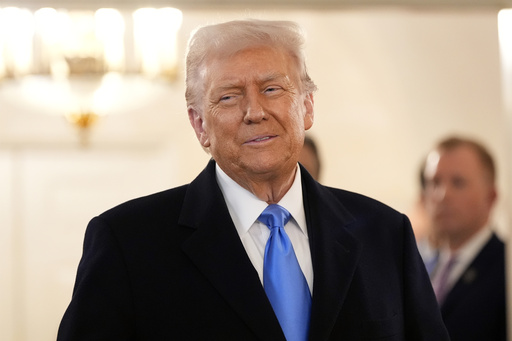Defense Secretary Pete Hegseth has outlined a significant change in U.S. strategy regarding Ukraine during a recent address in Brussels. He urged allies to let go of the “illusory goal” of restoring Ukraine to its pre-2014 borders and to prepare for potential negotiations with Russia, emphasizing that any international support would not include U.S. troops. This announcement comes as the international community awaits clarity on the extent of military and financial aid the U.S. plans to provide to Ukraine. Hegseth’s message indicates a shift towards encouraging Europe to take more responsibility for Ukraine’s defense.
In the U.S., troubling inflation figures emerged concurrently with President Donald Trump’s plans to reshape global trade through a broad series of reciprocal tariffs. This strategy could significantly impact consumers and businesses, potentially leading to an increase in inflation and economic disruptions. With imports reaching $4.1 trillion last year, the suggested tariffs might impose a considerable financial burden on American citizens, prompting criticism that Trump would be favoring the wealthy at the expense of the middle class.
Meanwhile, Indian Prime Minister Narendra Modi’s relationship with Trump may face challenges as he arrives in Washington. Modi is eager to avoid tariffs that have affected other nations and strengthen India’s strategic partnership with the United States. Although traditionally friendly, the two leaders’ rapport could be tested by Trump’s previous comments labeling India as a “tariff king.” Modi’s administration has shown readiness to negotiate better terms with the U.S. over tariffs and trade issues.
Global health advocates are alarmed by the implications of a shift in U.S. policy on reproductive health, particularly with the reinstatement of the “global gag rule.” Advocacy groups, such as the UN Foundation’s Universal Access Project, have criticized the loss of funding under the new policy. The cessation of support has been projected to lead to a steep rise in health risks for women and girls, as vital reproductive services have suddenly disappeared without warning. Officials like Dr. Carole Sekimpi from MSI Africa expressed deep concern that the lack of supplies is creating panic among those who relied on these crucial health services.
The Trump administration has confirmed the appointment of Kathleen Sgamma, an advocate for the oil and gas sector, as the new director of the Bureau of Land Management. This agency oversees a vast tract of federal lands and has traditionally advocated for increased resource extraction. Meanwhile, Brian Nesvik, a former Wyoming Game and Fish Department head, is set to direct the Fish and Wildlife Service, further signaling Trump’s commitment to policies favoring resource development.
Trump has also generated headlines with his controversial order restricting transgender athletes from competing in women’s sports, sparking praise from some human rights advocates who see it as a measure to preserve women’s athletic opportunities. However, this executive order raises questions about the broader implications for civil rights and sports participation.
In a move indicating ongoing tensions within aid sectors, new affidavits revealed that significant restructuring within the U.S. Agency for International Development (USAID) was being led by associates of Elon Musk. These changes are being challenged in court, with organizations seeking to restore funding for critical assistance programs that have been halted. Criticism surrounds the motivations and legality of these program terminations since they seemingly bypassed necessary oversight protocols.
Simultaneously, anticipation surrounds Trump’s comments about the release of another American prisoner, hinting at ongoing negotiations involving Russia. While details remain vague, there are indications that Trump may shape a new narrative around the U.S.-Russia relationship through these actions.
As all these dynamics unfold, Trump continues to underline a reciprocal approach to trade and international relations, suggesting that U.S. tariff rates would match those of other nations. This could lead to heightened global economic tensions, as the prospect of retaliatory measures looms large, potentially reshaping international trade alliances and practices.
Amid these geopolitical maneuvers, a recent reshuffle within federal oversight bodies has seen officials dismissed, including the inspector general for USAID. The firings, perceived as efforts to streamline operations within government agencies, have drawn scrutiny and concern over maintaining accountability and transparency in federal funding and aid distribution.
The landscape of U.S. foreign policy, defense, trade practices, and health initiatives appears to be undergoing significant revisions, reflecting the complex interplay of domestic and international pressures that will likely shape the nation’s trajectory in the coming months.




